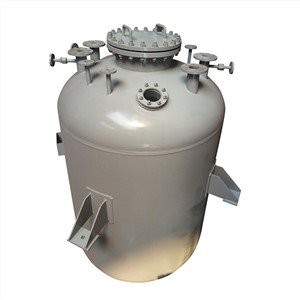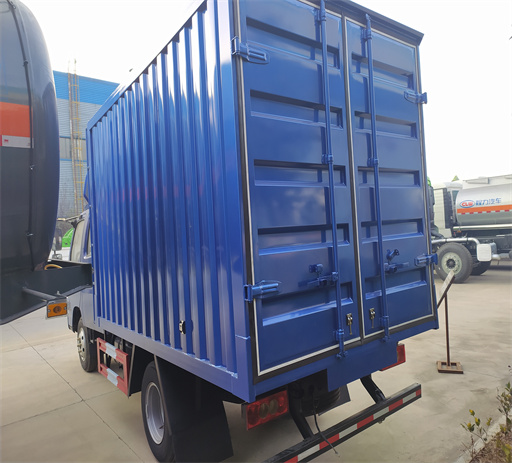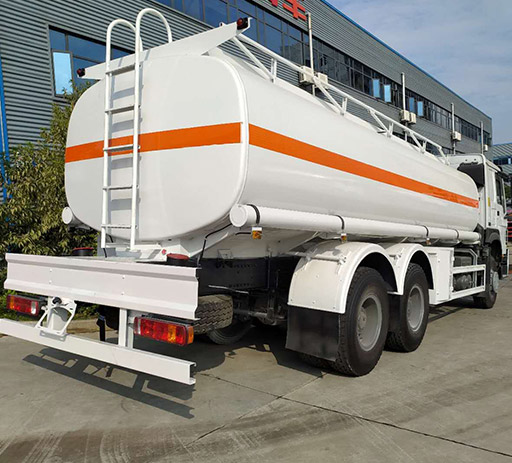Front Loader Waste Truck: The Ultimate Guide
In today’s modern world, efficient waste management is more important than ever. As cities grow and the volume of waste increases, waste management companies are constantly seeking innovative solutions to improve their services. Among these solutions, front loader waste trucks have emerged as a vital tool in the waste collection process. This article delves into the details of front loader waste trucks, exploring their operation, benefits, types, and best practices for use, along with a comprehensive FAQ section.
What is a Front Loader Waste Truck?
A front loader waste truck is a specialized vehicle designed for the collection and transportation of solid waste. Unlike traditional garbage trucks, front loaders feature a hydraulic arm and a large container at the front, allowing them to efficiently pick up waste bins and transfer their contents into the truck’s main compartment. This design enables faster and more efficient collection, making front loaders a popular choice for waste handling by municipalities and private waste management companies alike.
How Front Loader Waste Trucks Work
Operational Mechanism
Front loader waste trucks operate using a hydraulic system that powers their lifting and dumping capabilities. The following steps outline the typical operation of a front loader:
- Approach: The truck drives close to the waste bin.
- Engagement: The hydraulic arm extends to hook onto the bin.
- Lifting: The arm lifts the bin and tips it into the truck’s container.
- Release: After emptying, the bin is lowered back to its original position.
Key Components of a Front Loader Waste Truck
Understanding the key components of a front loader waste truck can help potential buyers or users appreciate its functionality:
- Hydraulic System: Powers the lifting and dumping mechanism.
- Chassis: Provides the structural foundation for the truck.
- Cab: Where the driver controls the vehicle.
- Body: The container that holds the waste collected.
- Rear Axle: Supports the weight of the truck, especially when loaded.
Benefits of Front Loader Waste Trucks
Front loader waste trucks provide several advantages that contribute to their widespread adoption:
Efficiency and Speed
These trucks allow for quick pick-up of multiple bins in a short amount of time, reducing the overall collection time compared to traditional methods.
Reduced Labor Costs
With automated lifting, less manual labor is required, which can result in reduced labor costs and increased safety for workers.
Improved Waste Management

Front loaders can handle larger volumes of waste, making them ideal for urban settings with high waste generation.
Versatility
These trucks can service a variety of environments, from residential areas to commercial zones, adapting to different waste collection needs.
Types of Front Loader Waste Trucks
Various models of front loader waste trucks are available, each tailored to meet specific demands:
Standard Front Loader Truck
This is the most common type, equipped with a standard bin lift and a large rear compartment.
Heavy-Duty Front Loader
Designed for industrial applications, heavy-duty front loaders can carry heavier loads and endure rougher terrains.
Compact Front Loader
Ideal for narrow streets and urban environments, compact front loaders are smaller in size but still effective in waste collection.
Factors to Consider When Choosing a Front Loader Waste Truck
Capacity Needs
Assess the amount of waste your operation typically handles to select the appropriate container capacity.
Fuel Type
| Fuel Type | Advantages | Disadvantages |
|---|---|---|
| Diesel | Higher torque, better for heavy loads | More emissions, noise pollution |
| Electric | Lower emissions, quieter operation | Lesser range, longer refueling times |
Maintenance and Support
Check the availability of parts and servicing options in your area when choosing a front loader waste truck.
Best Practices for Operating Front Loader Waste Trucks
Pre-Operational Checks
Before starting your shift, inspect the truck’s hydraulic system, brakes, and lights to ensure operational safety.
Effective Route Planning
Plan your collection routes ahead of time to enhance efficiency and minimize fuel consumption.
Training for Operators
Ensure that all operators are properly trained in the safe and efficient use of front loader waste trucks.
Environmental Impact of Front Loader Waste Trucks
Front loader waste trucks can have a significant impact on the environment, both positive and negative. Understanding these impacts can improve waste management practices:
Positive Environmental Impact
Efficient waste collection reduces littering and environmental degradation. Moreover, newer models often implement cleaner technologies that lower emissions.
Negatives and Mitigation Measures
Noise pollution and fuel consumption are potential environmental drawbacks. Utilizing electric models can mitigate some of these issues.
Innovations in Front Loader Waste Trucks
Smart Waste Management Technology
Modern front loader trucks are increasingly being integrated with smart technologies for real-time tracking and data analysis, enhancing operational efficiency.
Eco-Friendly Designs
Manufacturers are focusing on reducing the carbon footprints of their machines through electric options and lightweight materials.
Case Studies of Effective Use of Front Loader Waste Trucks
City of Seattle’s Waste Management Program
Seattle integrated front loader trucks into their waste management strategy, which led to a 30% increase in collection efficiency.
Waste Management Innovations in Germany
Germany utilized front loaders specifically designed for recycling, achieving a recycling rate of over 60% in urban settings.
Frequently Asked Questions (FAQ)
1. What is the typical lifespan of a front loader waste truck?

The lifespan of a front loader waste truck typically ranges from 10 to 15 years, depending on usage and maintenance.
2. How do I choose the right size of front loader truck for my business?
Consider your average waste collection volume, the number of stops on your route, and the types of materials being collected to determine the size.

3. Are front loader waste trucks suitable for residential areas?
Yes, front loader trucks can service residential areas, especially in locations where waste is collected from bins along the street.
4. What maintenance is required for front loader waste trucks?
Regular maintenance includes checking hydraulic systems, brakes, tires, and ensuring the cleanliness of the body and storage compartments.
5. How can I reduce the carbon footprint of my waste collection operations?
Utilizing electric front loader trucks, optimizing routes, and maintaining trucks can all contribute to lower emissions.
6. What training do drivers need to operate a front loader waste truck?
Drivers should undergo training on safety protocols, vehicle operation, and emergency procedures to ensure safe and effective use.
